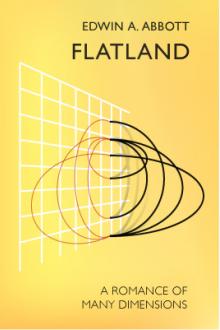Lorna Doone: A Romance of Exmoor, R. D. Blackmore [websites to read books for free txt] 📗

- Author: R. D. Blackmore
Book online «Lorna Doone: A Romance of Exmoor, R. D. Blackmore [websites to read books for free txt] 📗». Author R. D. Blackmore
Not only did I think two guineas a great deal too much money for a quarter of an hour's employment, but also I disliked particularly the words with which he concluded; they sounded, from his grating voice, like the evil omen of a croaking raven. Nevertheless I still abode in my fixed resolve to go, and find out, if I died for it, what was become of Lorna. And herein I lay no claim to courage; the matter being simply a choice between two evils, of which by far the greater one was, of course, to lose my darling.
The journey was a great deal longer to fetch around the Southern hills, and enter by the Doone-gate, than to cross the lower land and steal in by the water-slide. However, I durst not take a horse (for fear of the Doones who might be abroad upon their usual business), but started betimes in the evening, so as not to hurry, or waste any strength upon the way. And thus I came to the robbers' highway, walking circumspectly, scanning the sky-line of every hill, and searching the folds of every valley, for any moving figure.
Although it was now well on towards dark, and the sun was down an hour or so, I could see the robbers' road before me, in a trough of the winding hills, where the brook ploughed down from the higher barrows, and the coving banks were roofed with furze. At present, there was no one passing, neither post nor sentinel, so far as I could descry; but I thought it safer to wait a little, as twilight melted into night; and then I crept down a seam of the highland, and stood upon the Doone-track.
As the road approached the entrance, it became more straight and strong, like a channel cut from rock, with the water brawling darkly along the naked side of it. Not a tree or bush was left, to shelter a man from bullets: all was stern, and stiff, and rugged, as I could not help perceiving, even through the darkness, and a smell as of churchyard mould, a sense of being boxed in and cooped, made me long to be out again.
And here I was, or seemed to be, particularly unlucky; for as I drew near the very entrance, lightly of foot and warily, the moon (which had often been my friend) like an enemy broke upon me, topping the eastward ridge of rock, and filling all the open spaces with the play of wavering light. I shrank back into the shadowy quarter on the right side of the road; and gloomily employed myself to watch the triple entrance, on which the moonlight fell askew.
All across and before the three rude and beetling archways hung a felled oak overhead, black, and thick, and threatening. This, as I heard before, could be let fall in a moment, so as to crush a score of men, and bar the approach of horses. Behind this tree, the rocky mouth was spanned, as by a gallery with brushwood and piled timber, all upon a ledge of stone, where thirty men might lurk unseen, and fire at any invader. From that rampart it would be impossible to dislodge them, because the rock fell sheer below them twenty feet, or it may be more; while overhead it towered three hundred, and so jutted over that nothing could be cast upon them; even if a man could climb the height. And the access to this portcullis place—if I may so call it, being no portcullis there—was through certain rocky chambers known to the tenants only.
But the cleverest of their devices, and the most puzzling to an enemy, was that, instead of one mouth only, there were three to choose from, with nothing to betoken which was the proper access; all being pretty much alike, and all unfenced and yawning. And the common rumour was that in times of any danger, when any force was known to be on muster in their neighbourhood, they changed their entrance every day, and diverted the other two, by means of sliding doors to the chasms and dark abysses.
Now I could see those three rough arches, jagged, black, and terrible; and I knew that only one of them could lead me to the valley; neither gave the river now any further guidance; but dived underground with a sullen roar, where it met the cross-bar of the mountain. Having no means at all of judging which was the right way of the three, and knowing that the other two would lead to almost certain death, in the ruggedness and darkness,—for how could a man, among precipices and bottomless depths of water, without a ray of light, have any chance to save his life?—I do declare that I was half inclined to go away, and have done with it.
However, I knew one thing for certain, to wit, that the longer I stayed debating the more would the enterprise pall upon me, and the less my relish be. And it struck me that, in times of peace, the middle way was the likeliest; and the others diverging right and left in their farther parts might be made to slide into it (not far from the entrance), at the pleasure of the warders. Also I took it for good omen that I remembered (as rarely happened) a very fine line in the Latin grammar, whose emphasis and meaning is 'middle road is safest.'
Therefore, without more hesitation, I plunged into the middle way, holding a long ash staff before me, shodden at the end with iron. Presently I was in black darkness groping along the wall, and feeling a deal more fear than I wished to feel; especially when upon looking back I could no longer see the light, which I had forsaken. Then I stumbled over something hard, and sharp, and very cold, moreover so grievous to my legs that it needed my very best doctrine and humour to forbear from swearing, in the manner they use in London. But when I arose and felt it, and knew it to be a culverin, I was somewhat reassured thereby, inasmuch as it was not likely that they would plant this engine except in the real and true entrance.
Therefore I went on again, more painfully and wearily, and presently found it to be good that I had received that knock, and borne it with such patience; for otherwise I might have blundered full upon the sentries, and been shot without more ado. As it was, I had barely time to draw back, as I turned a corner upon them; and if their lanthorn had been in its place, they could scarce have failed to descry me, unless indeed I had seen the gleam before I turned the corner.
There seemed to be only two of them, of size indeed and stature as all the Doones must be, but I need not have feared to encounter them both, had they been unarmed, as I was. It was plain, however, that each had a long and heavy carbine, not in his hands (as it should have been), but standing close beside him. Therefore it behoved me now to be exceedingly careful, and even that might scarce avail, without luck in proportion. So I kept well back at the corner, and laid one cheek to the rock face, and kept my outer eye round the jut, in the wariest mode I could compass, watching my opportunity: and this is what I saw.
The two villains looked very happy—which villains have no right to be, but often are, meseemeth—they were sitting in a niche of rock, with the lanthorn in the corner, quaffing something from glass measures, and playing at push-pin, or shepherd's chess, or basset; or some trivial game of that sort. Each was smoking a long clay pipe, quite of new London shape, I could see, for the shadow was thrown out clearly; and each would laugh from time to time, as he fancied he





Comments (0)